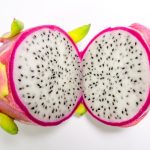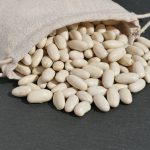What are the health benefits of pineapple?
Pineapple, the tropical delight that not only pleases our taste buds but also packs a punch when it comes to health benefits! Here are some of the fantastic advantages of enjoying this juicy fruit:
- Rich in Vitamins and Minerals: Pineapple is a great source of vitamin C, which supports a healthy immune system and aids in collagen production for healthy skin and joints. It also contains essential minerals like manganese, which plays a role in metabolism and antioxidant defenses.
- Digestive Aid: Pineapple contains bromelain, a group of enzymes that can aid in digestion by breaking down proteins and promoting better nutrient absorption. It may also help ease digestive discomfort and reduce bloating.
- Anti-Inflammatory Properties: The bromelain in pineapple is not only good for digestion but also acts as a natural anti-inflammatory agent. It may help reduce inflammation and swelling in the body, which could be beneficial for those with inflammatory conditions.
- Boosts Immunity: With its high vitamin C content, pineapple can give your immune system a boost, helping your body fend off common illnesses and infections.
- Supports Bone Health: Pineapple contains manganese, which is crucial for maintaining strong and healthy bones. Adequate manganese intake may help reduce the risk of osteoporosis.
- Hydration and Detoxification: Pineapple is a hydrating fruit, as it contains a high percentage of water. Staying hydrated is essential for overall health and aids in detoxification processes in the body.
- Promotes Skin Health: The vitamin C and antioxidants in pineapple can contribute to healthier and more vibrant skin by combating free radicals that cause premature aging.
- Heart Health: The potassium content in pineapple helps regulate blood pressure levels, promoting heart health and reducing the risk of cardiovascular diseases.
- Weight Management: Pineapple is relatively low in calories and high in fiber, making it a satisfying and guilt-free snack that can aid in weight management.
- Aids in Eye Health: Pineapple contains beta-carotene, which is essential for maintaining good vision and promoting eye health.
Remember, while pineapples offer numerous health benefits, moderation is key, as excessive consumption can lead to digestive discomfort due to the bromelain content. As with any dietary change or addition, it’s always a good idea to consult with a healthcare professional, especially if you have specific health conditions or concerns. Enjoy the delicious goodness of pineapple, and savor its health-boosting properties!
Purium’s Bio Fruit contains an impressive variety of nutrient-dense, organic fruits to support total body nutrition. We recommend adding Bio Fruit and any of our green food products to your daily health regimen for comprehensive nutritional support.
-
May support proper digestion
-
Can aid in preventing premature aging
-
May support healthy heart, liver and brain function
What in pineapple causes a tingling sensation when eating?
The tingling sensation experienced when eating pineapple is often attributed to an enzyme called bromelain. Bromelain is a mixture of proteolytic enzymes found in various parts of the pineapple plant, including the fruit’s core. These enzymes are responsible for breaking down proteins, which is why pineapple is often used as a natural meat tenderizer.
When you eat pineapple, especially the core or the part closer to the skin, the bromelain enzymes come into contact with proteins in your mouth, including those on your tongue and the lining of your mouth. The bromelain starts to break down these proteins, and some people may experience a tingling or prickling sensation in their mouth as a result. This sensation is often described as a mild irritation or slight burning feeling.
It’s essential to note that not everyone will experience this tingling sensation, and its intensity can vary from person to person. Some individuals may be more sensitive to bromelain, while others may not notice the effect at all.
If you find the tingling sensation uncomfortable, you can try peeling the pineapple more thoroughly, removing the core, or choosing fully ripe pineapples, as the bromelain content decreases as the fruit ripens. Cooking or heating pineapple can also denature the bromelain enzymes, reducing their activity and minimizing the tingling sensation.
For those with a known pineapple allergy or sensitivity to bromelain, avoiding pineapple altogether or opting for canned pineapple (where the bromelain is typically deactivated through the canning process) may be necessary to prevent any adverse reactions. As with any food sensitivity or allergy, if you experience severe or concerning symptoms, it’s essential to consult with a healthcare professional for proper evaluation and guidance.
Are there differences in nutrition between fresh pineapple and canned pineapple?
Yes, there are some differences in nutrition between fresh pineapple and canned pineapple. The primary factors that contribute to these differences are the processing methods involved in canning and the addition of any syrup or sugar.
- Nutrient Content: Fresh pineapple generally retains more of its natural nutrients compared to canned pineapple. Processing and canning can cause some loss of water-soluble vitamins like vitamin C, although the amount of loss may vary depending on the canning process and storage conditions. Fresh pineapple is likely to have higher vitamin C levels compared to canned versions.
- Added Sugar: Canned pineapples are often packed in syrup, which can significantly increase the sugar content. Some canned pineapple products may also have added sugar to enhance flavor and preserve the fruit. This means that canned pineapple can be higher in added sugars compared to fresh pineapple.
- Bromelain Content: Bromelain, the enzyme responsible for the tingling sensation in the mouth when consuming pineapple, may be partially degraded during the canning process due to heat treatment. Fresh pineapple, especially the core, tends to have higher levels of active bromelain compared to canned pineapple.
- Texture and Flavor: Canning involves heat treatment, which can affect the texture and flavor of pineapple. Fresh pineapple is usually firmer and juicier compared to the softer texture of canned pineapple. Some people may prefer the taste and texture of fresh pineapple over canned versions.
- Convenience and Shelf Life: Canned pineapple offers the advantage of convenience and a longer shelf life compared to fresh pineapple. Canned pineapple can be stored for an extended period without refrigeration, making it a more accessible option in certain situations.
When choosing between fresh and canned pineapple, consider your nutritional needs and personal preferences. If you are looking for higher vitamin C content and a more natural taste, fresh pineapple is the way to go. However, canned pineapple can still be a reasonable option when fresh pineapple is not readily available, as long as you check the label for added sugars and opt for varieties packed in their juice or water instead of syrup.
Remember that moderation is key when consuming any food, including pineapple, due to its natural sugar content. Enjoy pineapple as part of a balanced diet and savor its delicious flavor and health benefits in moderation.
Pineapple can improve your digestion, boost your immunity, give you healthier skin and much more! #HealthSurgeon
Coco Hydrate
A delicious, refreshing, and healthier alternative to an energizing drink, Coco Hydrate is a coconut water-based blend that is loaded with electrolytes and antioxidants! With a pineapple twist, this daily drink helps boost hydration levels and supports joints during recovery and high-intensity activities.
Sources:
https://www.medicalnewstoday.com/articles/323783#:~:text=Bromelain%20is%20a%20mixture%20of%20enzymes%20derived%20from%20the%20pineapple,to%20back%20up%20its%20effectiveness
https://www.webmd.com/vitamins/ai/ingredientmono-895/bromelain
https://www.chfusa.com/blog/difference-between-fresh-pineapple-juice-and-canned/#:~:text=The%20added%20heat%20used%20during,ll%20see%20a%20clear%20winner.









